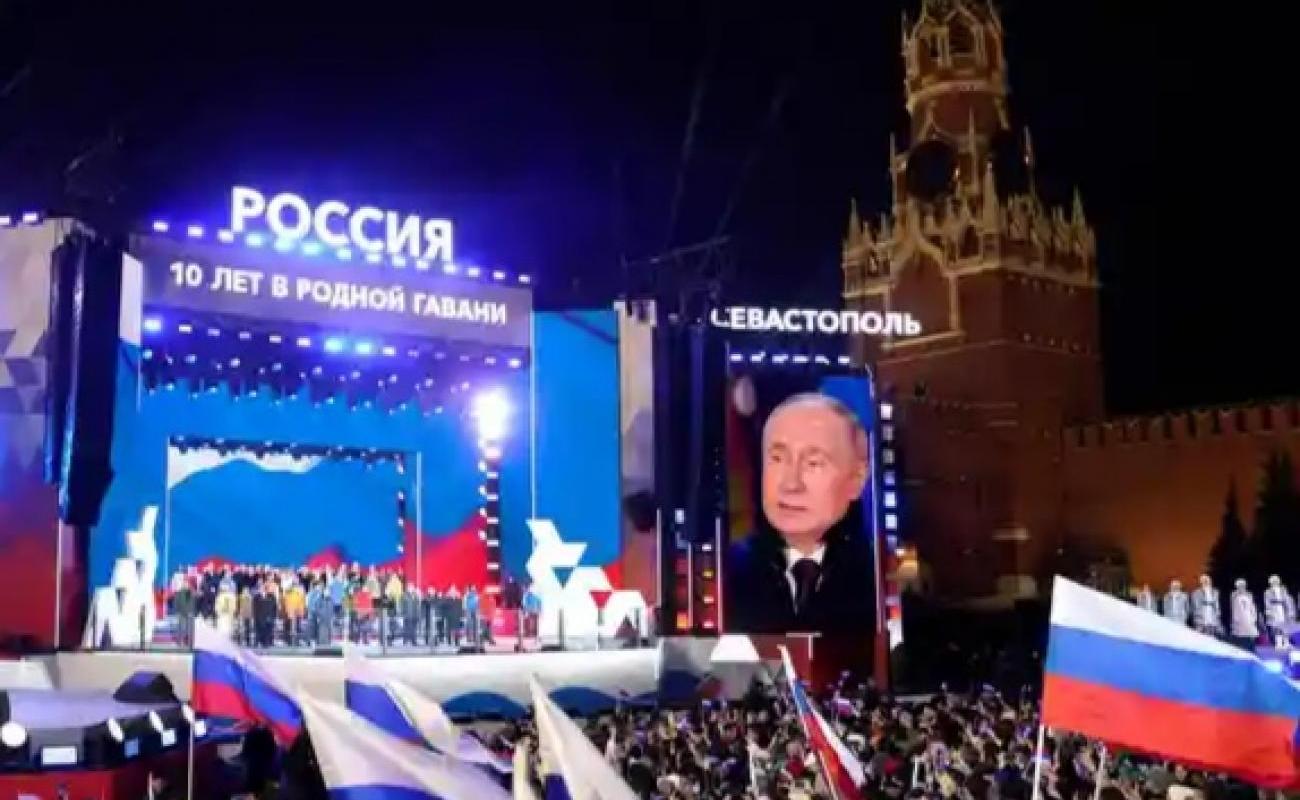The United States has reportedly sent its European allies a confidential document with proposals for a ceasefire in Russia’s war against Ukraine. One of the most important points is reportedly recognizing Russian control over the Ukrainian peninsula of Crimea, which Moscow annexed in 2014. This was initially reported by Bloomberg news agency, the American news channel CNN, the influential daily newspaper The Washington Post and the business newspaper The Wall Street Journal.
According to the proposal, the Americans expected a response from Ukraine by April 23. But earlier, the short-term meeting of top diplomats in London was reduced to a consultative level after representatives from Germany, Great Britain, France and Ukraine canceled their participation. US Secretary of State Marco Rubio also canceled his attendance. Until then, US President Donald Trump was not ready to confirm or deny reports about the possible recognition of Crimea as Russian territory.
How is Ukraine reacting?
In the more than eleven years since the illegal annexation, the Crimean issue has been a recurring topic in the media. This time, however, official Kiev was in no hurry to comment on the reports. One of the first to react was the representative of the Crimean Tatars, Refat Chubarov. He told Radio Liberty that the Trump administration is only testing the Ukrainian leadership with its messages regarding territorial concessions, without which the war cannot be ended and a lasting peace cannot be achieved.
A little later, the Ukrainian president's office also reacted. Kiev did not discuss the recognition of Crimea as part of Russia in talks with the United States and does not agree with it, presidential advisor Serhiy Leshchenko assured Ukrainian television.
President Volodymyr Zelensky then clearly wanted to put an end to this discussion. In response to questions from reporters on the evening of April 22 in Kiev, he emphasized that Ukraine would not recognize Russia’s occupation of the Autonomous Republic of Crimea, as this would be a violation of the Ukrainian Constitution. “Crimea is not up for debate,” he emphasized, reiterating that the peninsula is Ukrainian territory. Trump called the Ukrainian president’s statement “very damaging to peace negotiations with Russia.”
"If they want Crimea, why didn't they fight for it 11 years ago when it was handed over to Russia without a shot being fired?" Trump wrote on his Truth Social platform on April 23.
Risks of recognizing the annexation of Crimea
The US-based Robert Lansing Institute for the Study of Global Threats and Democracies (RLI) has outlined several risks to the international order from recognizing the annexation of Crimea. It would represent "a fundamental shift in US foreign policy and a break with decades of legal principles that defend territorial integrity."
The institute's experts emphasize:
First, recognizing the annexation of Crimea would be a strategic blow to international norms. It would undermine the principle of territorial integrity enshrined in international law and weaken the legal order established after World War II. This would encourage other authoritarian states like China or Turkey to engage in territorial revisionism.
Second, it would lead to alienation among allies in the Western camp. Ukraine would view such a step as a betrayal, and above all, the Eastern European members of NATO and the EU would view it as a capitulation to Russian aggression.
Third, such a move would have implications for domestic U.S. politics. It would provoke a bipartisan backlash and raise questions about Trump's true motives, especially given speculation about his possible long-standing ties to Moscow.
RLI also warns that recognizing the annexation of Crimea would seriously damage the credibility of American support for democracy and the rule of law around the world, especially in countries vulnerable to authoritarian pressure.
"Extremely dangerous precedent"
Ukrainian political scientist Volodymyr Fesenko shares this assessment. He said in an interview with DW that Crimea is a “red line” and its loss is “absolutely unacceptable for Ukraine.” Legal recognition of the annexation of Crimea would create an “extremely dangerous precedent.” And this applies not only to Ukraine, but also to the entire world, given China’s claims to Taiwan and elsewhere. Fesenko believes that the downgrading of the London meeting shows that the American proposals published in the media have been practically rejected and will no longer be implemented.
Andras Racz of the German Foreign Policy Association (DGAP) also does not expect a quick breakthrough in diplomacy at the moment. “It is not surprising that the Ukrainian side rejected the American proposal,” he says. According to the political scientist, this would require Kiev to officially recognize the annexation of Crimea and, in effect, give up the Ukrainian territory occupied by Russia.
After the London meeting apparently went awry, observers are now speculating about what course Washington will take. On April 23, US Vice President J.D. Vance said that both Ukraine and Russia must give up some of the territory each side currently controls.
The US has made a "very clear proposal" to Russia and Ukraine, Vance warned: "Now is the time for either they say yes, or the US to withdraw from this process."
Source: Deutsche Welle/ Author: Dmytro Kanievski

